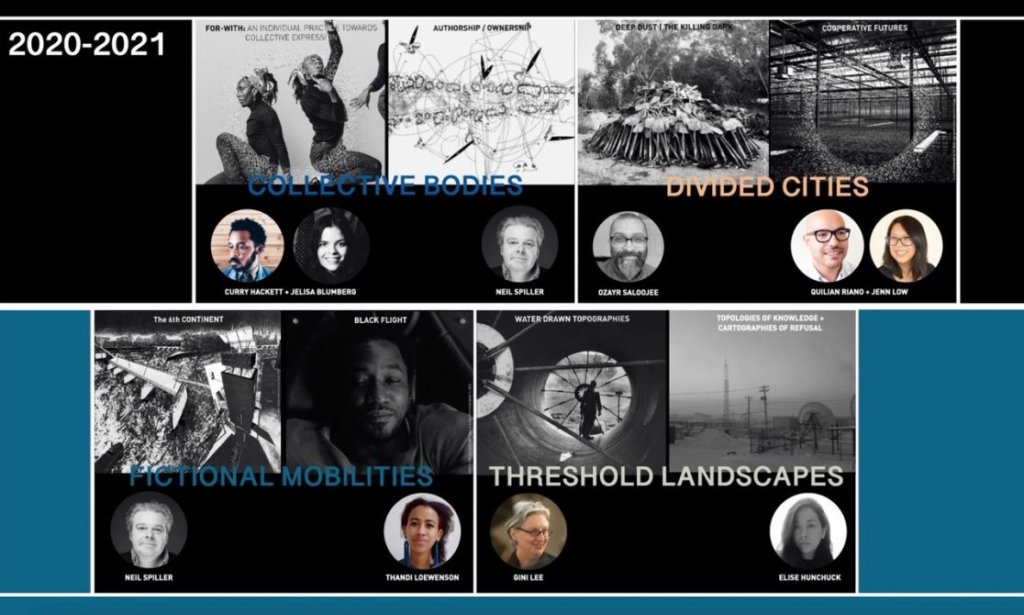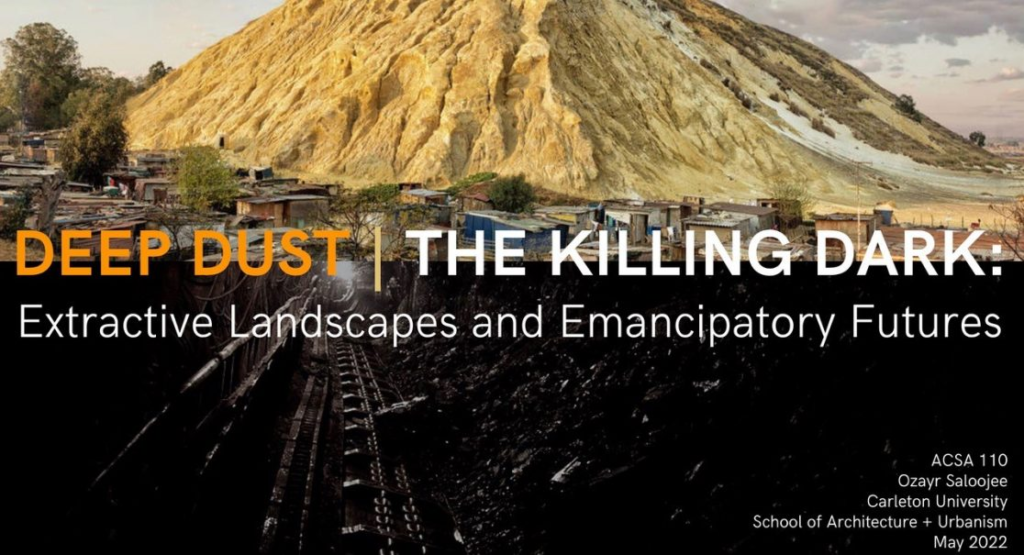Assoc. Prof. Ozayr Saloojee presents at three sessions of ACSA annual meeting
June 26, 2022
Associate Professor Ozayr Saloojee made three presentations at the 110th annual meeting of the Association of Collegiate Schools of Architecture (ACSA), with the theme Empower, which took place in May.
Dr. Saloojee presented a paper focusing on his 2020 and 2021 graduate design studio work “Deep Dust/The Killing Dark” at a session titled Design: Critical Positions, Design in Situ.

He presented alongside James Tate from Texas A&M University, Mark Donohue from the California College of the Arts, Mason White and Kearon Roy Taylor from the University of Toronto with Lola Sheppard from the University of Waterloo, and Karla Sierralta and Brian Strawn from the University of Hawaii at Manoa.
The ACSA Annual Meeting convenes educators, practitioners, and students from around the world to share research and explore the past and future of architecture, design, and allied disciplines.
Saloojee also participated in the session Pedagogy: Alternative Educational Modalities with Jessica Radomski from Thomas Jefferson University and Bethany Lundell Garver from the Boston Architectural College. Saloojee presented and discussed his ACSA Creative Achievement Award (“Worthy Curricula”) that described the Graduate Options studios at the Azrieli School of Architecture & Urbanism.


Finally, Saloojee took part in a panel discussion on the Journal of Architectural Education (JAE). He joined Nora Wendl (University of New Mexico, Albuquerque), David Theodore (McGill University), Yoonjee Koh (Boston Architectural College), Cruz Garcia (Iowa State University), and Igor Marjanovic (Rice University) for a conversation about the nature of a post-pandemic journal.
The panel discussed how the journal has curated its editorial board through its first open call for members and launched the JAE Fellows program. It also covered the creation of a position for an associate editor of social media and how disciplinary calls for transparency and the rise of social media to create networks of discourse necessitated them.
The panelists also discussed how the journal has changed from single-word titles that captured a large swath of ideas to provocations to think along the lines of social justice, e.g., from Health to Pedagogies for a Broken World, Reparations!, and the upcoming Spring 2023 issue, Deserts.